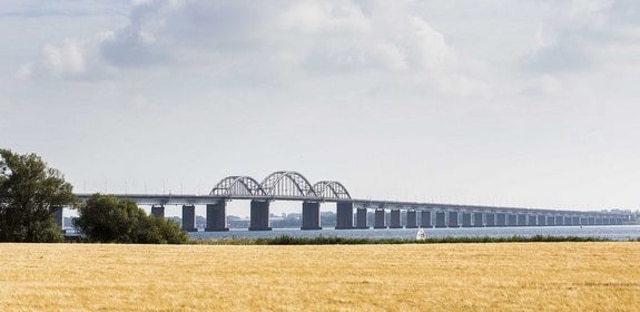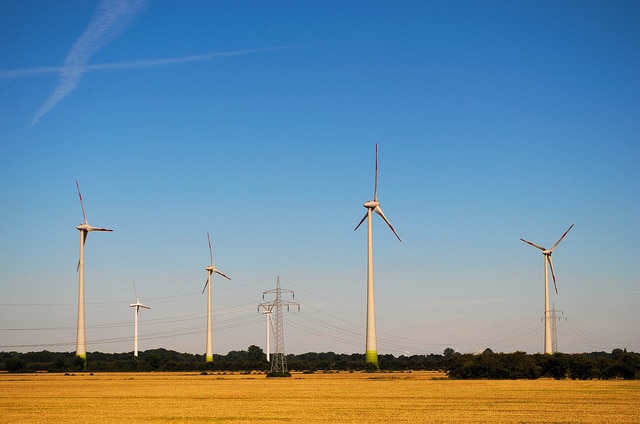Individual aid need not be capable itself to remedy serious economic disturbance in the economy of a Member State. It is sufficient that it contributes to that effect. Introduction On 22 June 2022, in case T‑657/20, Ryanair v European Commission, the General Court confirmed once more that Member States have a right to grant State aid to the undertakings of […]
State Aid Law
Blog
State Aid Uncovered Blog
In Lexxion’s State Aid Uncovered blog, Prof. Phedon Nicolaides publishes weekly critical analyses of recent State aid judgments and decisions. Each post presents the key points of a court judgment or EU Commission decision, places it in the context of similar case law or practice, assesses the underlying reasoning and highlights any inconsistencies or contradictions.
Guest contributions from other State aid experts will also be published on the blog at irregular intervals to complement the content of the blog posts.
Guest State Aid Blog ×
28. June 2022 |
State Aid Uncovered
by Phedon Nicolaides
2. March 2021 |
State Aid Uncovered
by Phedon Nicolaides
State aid may be used to compensate airlines licensed by domestic authorities for losses incurred as a result of national travel restrictions. [In case you have missed part I, you can access it here.] Introduction The European Commission acted swiftly to adopt a fairly accommodating and wide-ranging “Temporary Framework” to regulate State aid for the purposes of counter-acting the impact […]
23. February 2021 |
State Aid Uncovered
by Phedon Nicolaides
State aid may be used to compensate airlines licensed by domestic authorities for losses incurred as a result of national travel restrictions. Introduction The European Commission acted swiftly to adopt a fairly accommodating and wide-ranging “Temporary Framework” to regulate State aid for the purposes of counter-acting the impact of covid-19. The Temporary Framework was welcomed by both Member States and […]
27. October 2020 |
State Aid Uncovered
by Phedon Nicolaides
I am grateful to Peter Staviczky for comments on an earlier version. The possible negative impact of State aid on the environmental is taken into account when the aid measure violates directly the relevant EU law. The Commission protects the interests of other Member States by ensuring that the negative effects of State aid are kept to the minimum possible. […]
11. August 2020 |
State Aid Uncovered
by Phedon Nicolaides
The opening of a formal investigation obliges Member States to suspend implementation of their State aid measures. Update on Temporary Framework: Number of approved and published covid-19 measures, as of 7 August 2020: 241* Legal basis: Article 107(2)(b): 25; Article 107(3)(b): 203; Article 107(3)(c): 18 Four Member States have implemented 15 or more covid-19 measures each: Belgium, Denmark, Italy & […]
4. August 2020 |
State Aid Uncovered
by Phedon Nicolaides
Update on Temporary Framework: Number of approved and published covid-19 measures, as of 31 July 2020: 235* Legal basis: Article 107(2)(b): 24; Article 107(3)(b): 198; Article 107(3)(c): 18 Five Member States have implemented 13 or more covid-19 measures each: Belgium, Denmark, France, Italy & Poland. – Average number of measures per Member State: 8.3 – Median number of measures per […]
22. September 2015 |
State Aid Uncovered
by Phedon Nicolaides
Infrastructure that is commercially exploited [e.g. charging of tolls] is an economic activity. Infrastructure that is freely available to users is not economic activity. Access fees or tolls may be regulated. State aid must be necessary and proportional even if access fees are regulated. Introduction This article examines Commission decision SA.39078 concerning the Fehmarn belt fixed link in Denmark.[1] This […]
13. April 2015 |
State Aid Uncovered
by Phedon Nicolaides
Part II: Support of electricity production from renewable energy sources is normally compatible with the internal market. Reduction of taxes on electricity used by energy-intensive industries is allowed only for certain sectors exposed to international trade and only when they bear a certain cost. Taxes on imported electricity normally infringe free-trade and non-discrimination provisions, unless commensurate benefits are extended to […]
Guest State Aid Blog ×
28. June 2022 |
State Aid Uncovered
by Phedon Nicolaides
Individual aid need not be capable itself to remedy serious economic disturbance in the economy of a Member State. It is sufficient that it contributes to that effect. Introduction On 22 June 2022, in case T‑657/20, Ryanair v European Commission, the General Court confirmed once more that Member States have a right to grant State aid to the undertakings of […]
2. March 2021 |
State Aid Uncovered
by Phedon Nicolaides
State aid may be used to compensate airlines licensed by domestic authorities for losses incurred as a result of national travel restrictions. [In case you have missed part I, you can access it here.] Introduction The European Commission acted swiftly to adopt a fairly accommodating and wide-ranging “Temporary Framework” to regulate State aid for the purposes of counter-acting the impact […]
23. February 2021 |
State Aid Uncovered
by Phedon Nicolaides
State aid may be used to compensate airlines licensed by domestic authorities for losses incurred as a result of national travel restrictions. Introduction The European Commission acted swiftly to adopt a fairly accommodating and wide-ranging “Temporary Framework” to regulate State aid for the purposes of counter-acting the impact of covid-19. The Temporary Framework was welcomed by both Member States and […]
27. October 2020 |
State Aid Uncovered
by Phedon Nicolaides
I am grateful to Peter Staviczky for comments on an earlier version. The possible negative impact of State aid on the environmental is taken into account when the aid measure violates directly the relevant EU law. The Commission protects the interests of other Member States by ensuring that the negative effects of State aid are kept to the minimum possible. […]
11. August 2020 |
State Aid Uncovered
by Phedon Nicolaides
The opening of a formal investigation obliges Member States to suspend implementation of their State aid measures. Update on Temporary Framework: Number of approved and published covid-19 measures, as of 7 August 2020: 241* Legal basis: Article 107(2)(b): 25; Article 107(3)(b): 203; Article 107(3)(c): 18 Four Member States have implemented 15 or more covid-19 measures each: Belgium, Denmark, Italy & […]
4. August 2020 |
State Aid Uncovered
by Phedon Nicolaides
Update on Temporary Framework: Number of approved and published covid-19 measures, as of 31 July 2020: 235* Legal basis: Article 107(2)(b): 24; Article 107(3)(b): 198; Article 107(3)(c): 18 Five Member States have implemented 13 or more covid-19 measures each: Belgium, Denmark, France, Italy & Poland. – Average number of measures per Member State: 8.3 – Median number of measures per […]
22. September 2015 |
State Aid Uncovered
by Phedon Nicolaides
Infrastructure that is commercially exploited [e.g. charging of tolls] is an economic activity. Infrastructure that is freely available to users is not economic activity. Access fees or tolls may be regulated. State aid must be necessary and proportional even if access fees are regulated. Introduction This article examines Commission decision SA.39078 concerning the Fehmarn belt fixed link in Denmark.[1] This […]
13. April 2015 |
State Aid Uncovered
by Phedon Nicolaides
Part II: Support of electricity production from renewable energy sources is normally compatible with the internal market. Reduction of taxes on electricity used by energy-intensive industries is allowed only for certain sectors exposed to international trade and only when they bear a certain cost. Taxes on imported electricity normally infringe free-trade and non-discrimination provisions, unless commensurate benefits are extended to […]
Guest State Aid Blog ×
28. June 2022 |
State Aid Uncovered
by Phedon Nicolaides
Individual aid need not be capable itself to remedy serious economic disturbance in the economy of a Member State. It is sufficient that it contributes to that effect. Introduction On 22 June 2022, in case T‑657/20, Ryanair v European Commission, the General Court confirmed once more that Member States have a right to grant State aid to the undertakings of […]
2. March 2021 |
State Aid Uncovered
by Phedon Nicolaides
State aid may be used to compensate airlines licensed by domestic authorities for losses incurred as a result of national travel restrictions. [In case you have missed part I, you can access it here.] Introduction The European Commission acted swiftly to adopt a fairly accommodating and wide-ranging “Temporary Framework” to regulate State aid for the purposes of counter-acting the impact […]
23. February 2021 |
State Aid Uncovered
by Phedon Nicolaides
State aid may be used to compensate airlines licensed by domestic authorities for losses incurred as a result of national travel restrictions. Introduction The European Commission acted swiftly to adopt a fairly accommodating and wide-ranging “Temporary Framework” to regulate State aid for the purposes of counter-acting the impact of covid-19. The Temporary Framework was welcomed by both Member States and […]
27. October 2020 |
State Aid Uncovered
by Phedon Nicolaides
I am grateful to Peter Staviczky for comments on an earlier version. The possible negative impact of State aid on the environmental is taken into account when the aid measure violates directly the relevant EU law. The Commission protects the interests of other Member States by ensuring that the negative effects of State aid are kept to the minimum possible. […]
11. August 2020 |
State Aid Uncovered
by Phedon Nicolaides
The opening of a formal investigation obliges Member States to suspend implementation of their State aid measures. Update on Temporary Framework: Number of approved and published covid-19 measures, as of 7 August 2020: 241* Legal basis: Article 107(2)(b): 25; Article 107(3)(b): 203; Article 107(3)(c): 18 Four Member States have implemented 15 or more covid-19 measures each: Belgium, Denmark, Italy & […]
4. August 2020 |
State Aid Uncovered
by Phedon Nicolaides
Update on Temporary Framework: Number of approved and published covid-19 measures, as of 31 July 2020: 235* Legal basis: Article 107(2)(b): 24; Article 107(3)(b): 198; Article 107(3)(c): 18 Five Member States have implemented 13 or more covid-19 measures each: Belgium, Denmark, France, Italy & Poland. – Average number of measures per Member State: 8.3 – Median number of measures per […]
22. September 2015 |
State Aid Uncovered
by Phedon Nicolaides
Infrastructure that is commercially exploited [e.g. charging of tolls] is an economic activity. Infrastructure that is freely available to users is not economic activity. Access fees or tolls may be regulated. State aid must be necessary and proportional even if access fees are regulated. Introduction This article examines Commission decision SA.39078 concerning the Fehmarn belt fixed link in Denmark.[1] This […]
13. April 2015 |
State Aid Uncovered
by Phedon Nicolaides
Part II: Support of electricity production from renewable energy sources is normally compatible with the internal market. Reduction of taxes on electricity used by energy-intensive industries is allowed only for certain sectors exposed to international trade and only when they bear a certain cost. Taxes on imported electricity normally infringe free-trade and non-discrimination provisions, unless commensurate benefits are extended to […]










